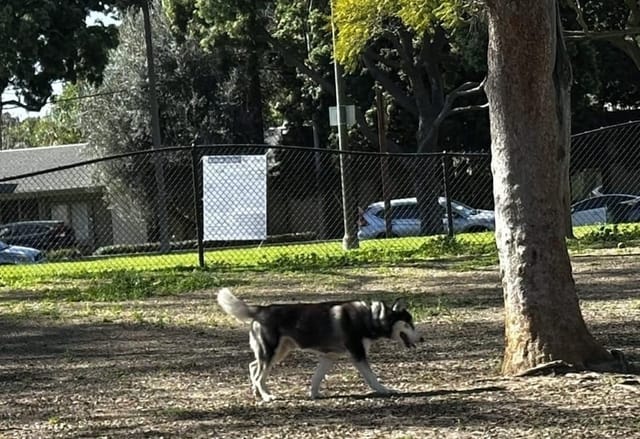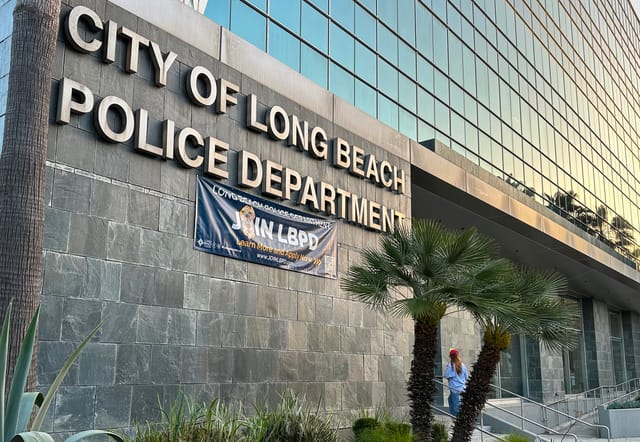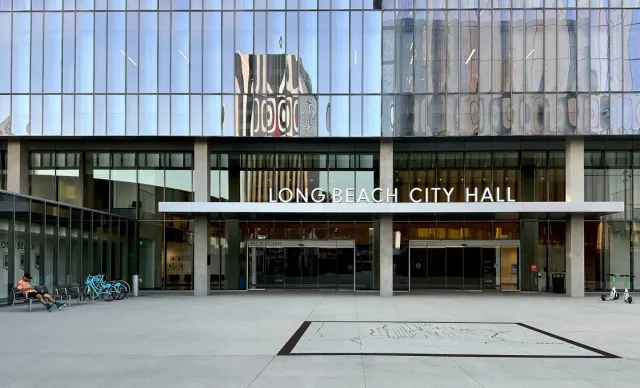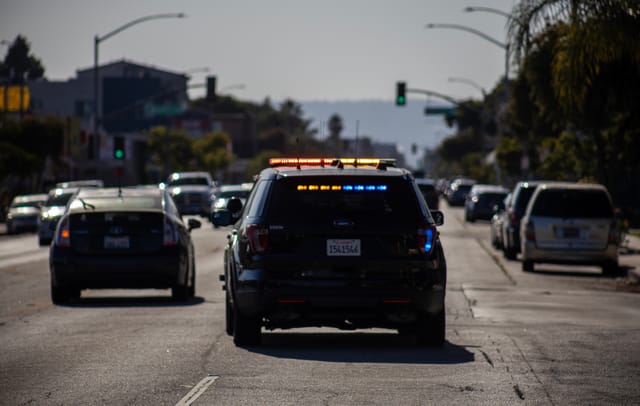Column: Traffic deaths are rising, but Long Beach police are issuing fewer traffic citations than ever
It’s time to look at traffic safety cameras, and other automated enforcement.
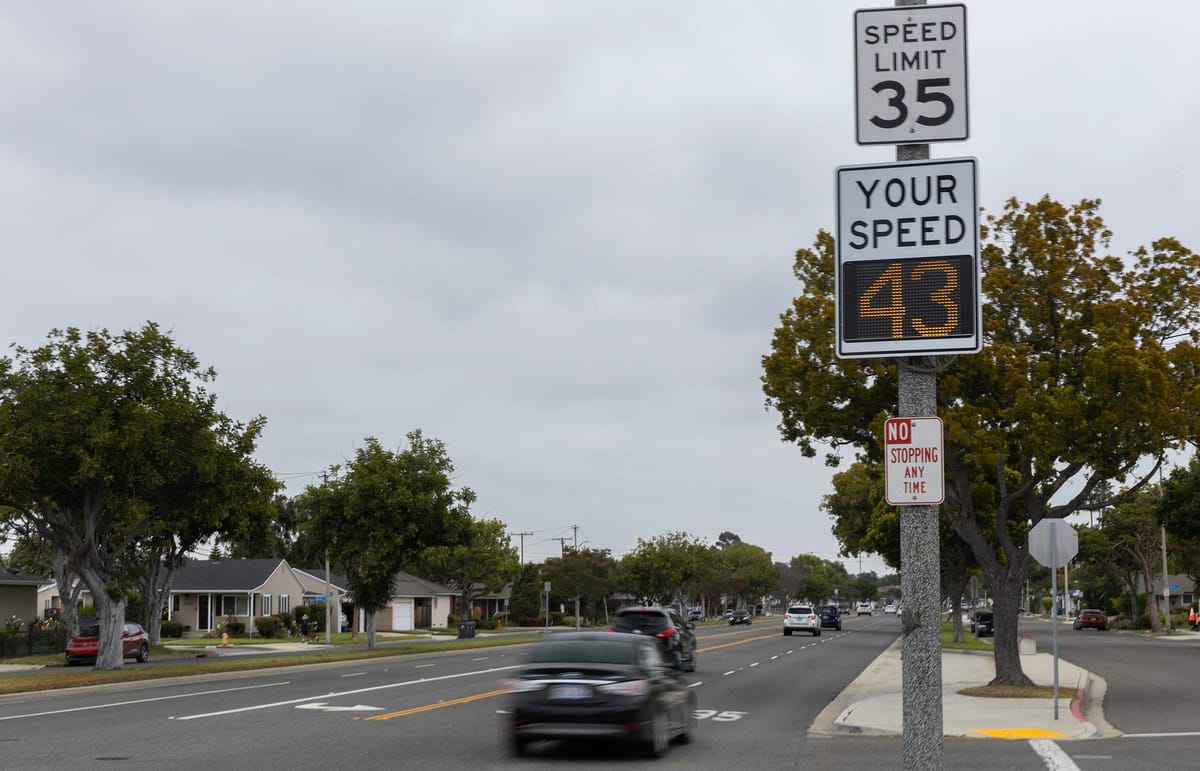
The Long Beach Police Department reported 23,137 moving violations in 2019, according to data provided to the Watchdog. But just one year later, that number dropped to 11,239.
This is understandable; the global pandemic that briefly shut down the country also halted vehicle traffic for a short time, and there were fewer drivers on the road.
Vehicle miles traveled in Southern California rebounded to near pre-pandemic levels by August 2020, according to a SCAG report. But in Long Beach, the number of citations never went back up.
LBPD reported just 11,894 moving violations in 2021, and only 11,032 in 2022.
Meanwhile, in 2020, traffic deaths reached an all-time high. The city averaged fewer than 30 traffic fatalities between 2013 and 2019 but 49 people were killed in 2020, and 45 in both 2021 and 2022, according to the city’s 2023 Update on the Safe Streets Long Beach Action Plan.
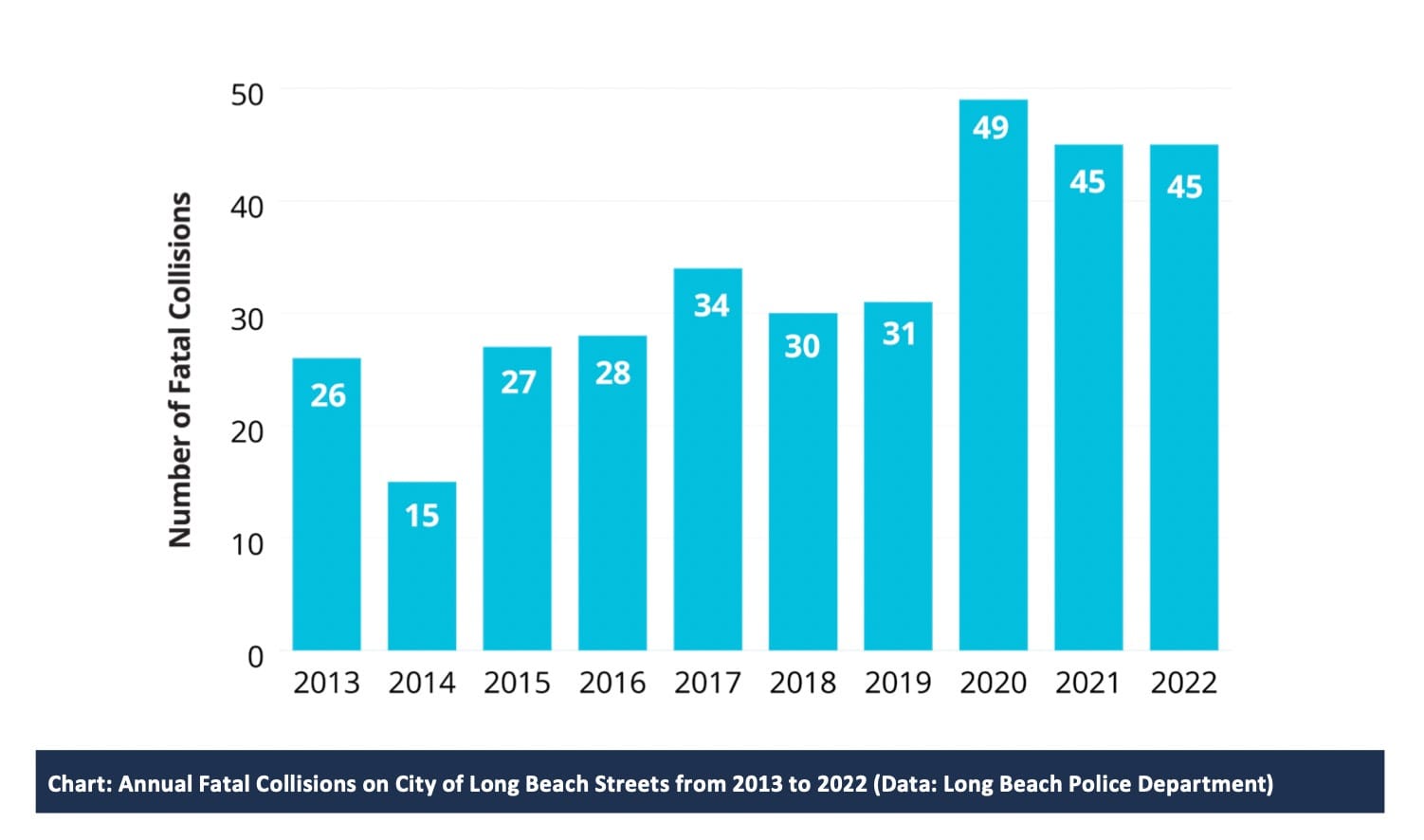
Back in 2009, the Department reported more than 72,000 moving violations. By 2016, that number was below 20,000, according to data from LBPD. Over the past 15 years, traffic enforcement has steadily declined, and road safety has gone down with it.
This problem isn’t unique to Long Beach, though. Statewide, traffic enforcement has plummeted.
According to court records, in 2013, California processed criminal filings for nearly 4.8 million traffic infractions and more than 536,000 misdemeanors (for more serious offenses, like impaired driving).
By 2022, these numbers had dropped by 47% and 65% respectively; fewer than 2.5 million infractions and only 185,000 misdemeanors were issued.
I won’t pretend to know for sure why traffic enforcement has gone down so much in the last decade, but I’m sure it has something to do with America’s reckoning with police brutality and racial profiling, and the clear disparity in which drivers police pull over most often is central to this topic.
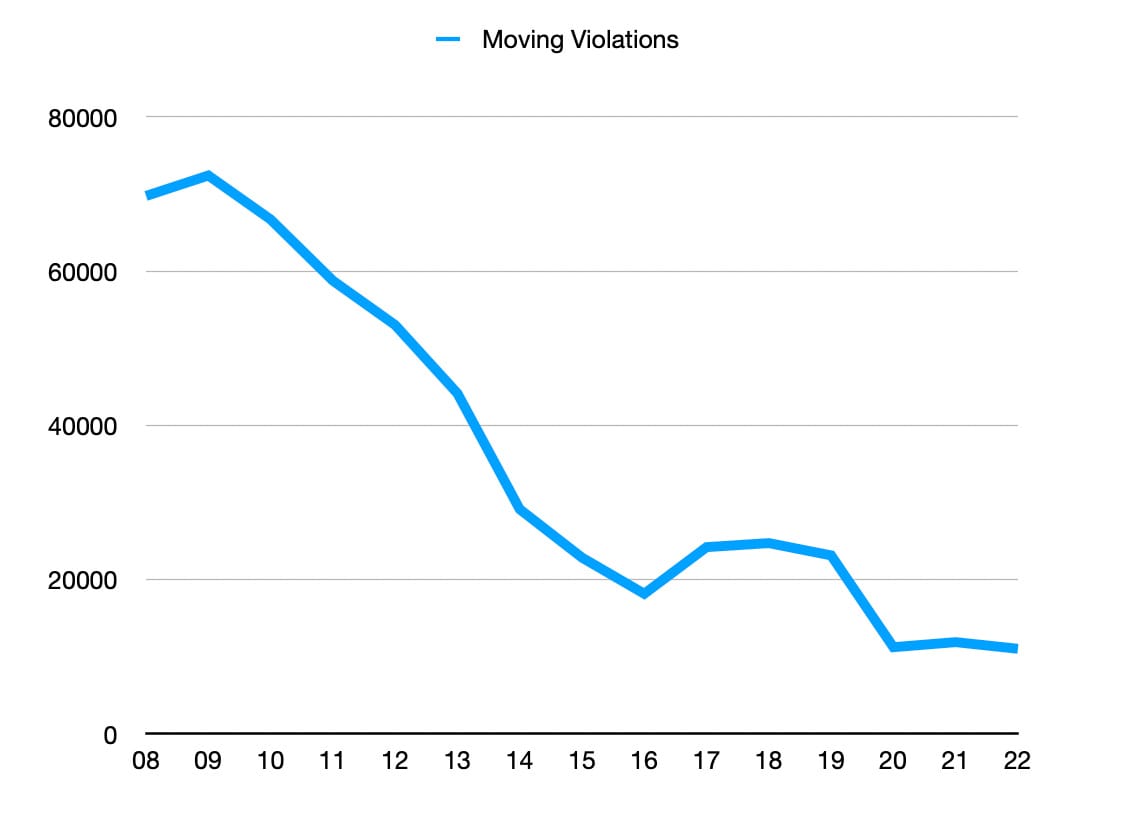
The thing is, a call to stop discriminating against Black drivers is not one to stop doing traffic enforcement entirely.
But, all right, fine. If the police can’t (or won't) enforce traffic laws without being horribly racist, we have other options.
The first is what the city’s Vision Zero plan outlined. Rebuilding our streets to prevent drivers from speeding will be more effective than any effort to catch and punish them for the act.
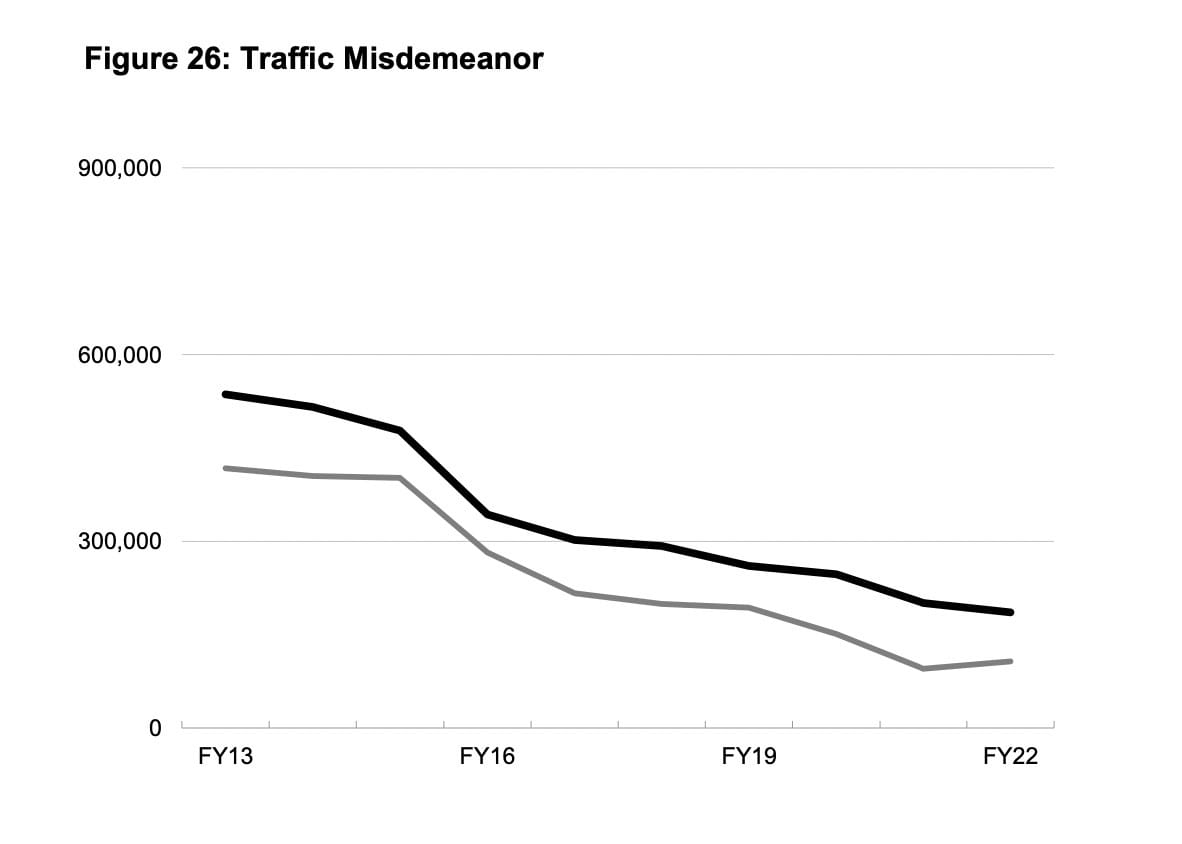
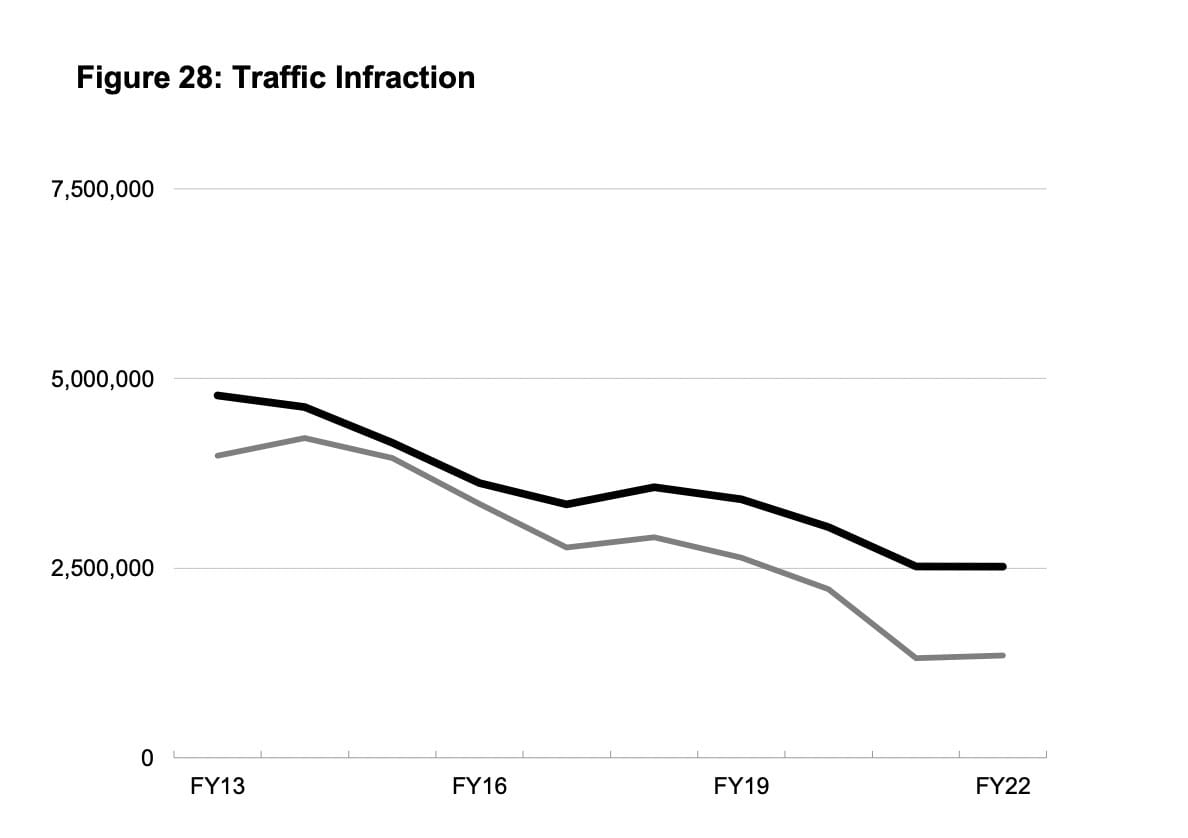
The plan makes it clear that the biggest issue is vehicle speed, and that reconfiguring the roads (by reducing lanes, adding medians, installing speed bumps, etc.) is a surefire way to to address that.
But these roadway reconfigurations take time and cost a lot of money. The city is spending hundreds of millions of Measure A dollars on rebuilding our streets over the next several years, but that will only get us so far. We won’t have the whole city’s road network rebuilt anytime soon at that pace.
That brings me to the second option: traffic safety cameras. Red light cameras, speed cameras, and other automated enforcement options give us the ability to rapidly adjust driver behavior.
Traffic cameras that catch you 100% of the time are a lot more effective than the current system. Then, when tickets start getting mailed to people every time they speed, the hope is that they’ll get the idea and stop speeding.
These cameras also don’t require police involvement at all. There’s no risk of getting assaulted by an officer or racially profiled by a camera taking pictures of your license plate.
And the best part is they aren’t costly and don’t take much time to install.
There are concerns about the potential for abuse, either through where the cameras are located, or how they are enforced. But the good news is that AB 645 — the bill legalizing speed cameras that Governor Gavin Newsom signed into law last year — includes many provisions to try to ensure that doesn't happen. Long Beach is one of five cities chosen to take part in its pilot program.
Long Beach Watchdog is a reader-supported publication. To receive new posts and support our work, consider becoming a free or paid subscriber.
There will be an information drive to inform the public about where the cameras will be located; requirements to develop uniform guidelines for the processing and storage of confidential information like the registration attached to your license plate; and requirements to study and report on the system’s “impact on street safety and economic impact on the communities where the system is utilized,” according to the bill text.
Plus, if such cameras are installed in every district, ticketing minority drivers disproportionately will become less common.
The effect on behavior where cameras are installed is clear; drivers stop speeding when they know they’ll automatically be ticketed. You can see a clear distinction in New York City’s cameras between when they’re turned on or off overnight (the city decided to leave them on permanently in 2022).
Now that they’re legal again in California we should embrace this non-cop way of enforcing traffic safety laws that will save lives. More than 40 people died in traffic in Long Beach each of the last four years, and annual traffic deaths have outpaced murders in the city for some time now.
The way we’re going without traffic enforcement has to be part of why so many people are dying. It’s time to find a way to stop the carnage without inviting a different problem, and cameras are the way.
I don’t want cops pulling people over. I want a harmless camera to send people tickets in the mail for breaking the law.
Jake Gotta was laid off from the Long Beach Post on March 22, yet he still serves as social media manager and columnist for the Watchdog without pay.
Subscribe to the Watchdog or donate to the Long Beach Media Guild’s Relief Fund to support his work.
Clocked Out: Visiting America's oldest Renaissance Fair
Kat Schuster • May 13, 2024

Good day, Before we get very excited about things like turkey legs, jousting, jolly pipers, flower crowns, corsets, goblets and archery — I have but one warning: Thee (probably) shouldn't wend to the Renaissance Pleasure Faire whilst unemploy'd. The tickets are
Read full story →
We need your support.
Subcribe to the Watchdog today.
The Long Beach Watchdog is owned by journalists, and paid for by readers like you. If independent, local reporting like the story you just read is important to you, support our work by becoming a subscriber.


